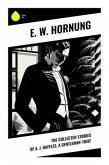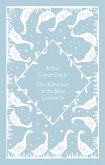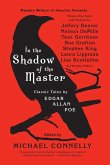In "The Missing Million," Edgar Wallace crafts a gripping mystery that delves into themes of wealth, deception, and societal intrigue. The narrative unfolds through a series of sharp twists and vivid characterizations, typical of Wallace's style, which fuses elements of detective fiction and sensationalism. Set against the backdrop of early 20th-century England, the novel encapsulates the era's fascination with crime and the moral complexities that accompany wealth. Wallace's masterful pacing and rich, descriptive prose create an engaging atmosphere that hooks readers from the first page, illustrating the tensions between perception and reality in an era marked by monetary obsession. Edgar Wallace, a prolific writer and journalist known for his prolific output and dynamic storytelling, was influenced by his early experiences in the bustling streets of London. His varied career, which included working as a war correspondent and screenwriter, provided him with a unique perspective on the human condition, especially the interplay of corruption and greed. Wallace's personal encounters with societal disparities may have spurred his exploration of themes relevant to "The Missing Million," making it a critical reflection of his times. Readers seeking a captivating dive into the complexities of human nature and society will find "The Missing Million" an enthralling read. Wallace's sharp wit, engaging plot, and intricate character development promise to entertain and provoke thought, making it essential for enthusiasts of classic crime fiction and literary history alike.
Bitte wählen Sie Ihr Anliegen aus.
Rechnungen
Retourenschein anfordern
Bestellstatus
Storno








